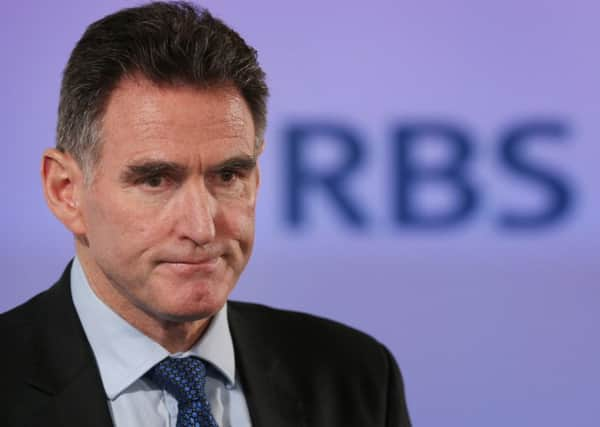Backlash over RBS bank chief's online fraud remarks


Ross McEwan said banks could not always be held responsible if customers revealed account details to online scammers.
Mr McEwan said reimbursing everyone would be too costly, leading to increased fees and charges.
Advertisement
Hide AdAdvertisement
Hide AdFrom January to September 2015 almost 5,000 RBS customers lost £25 million to fraudsters, an average of £5,000 each.
“We are working very hard to help customers detect when there are difficulties, but I think this has to be in partnership with the customer and with the bank,” Mr McEwan said.
“You can’t keep blaming this on an organisation where customers don’t take their own duty of care as well.”
But Labour MSP Neil Findlay said Mr McEwan’s comments showed he was “out of touch” with customers.
RBS which has been making losses since its £46billion bailout at the height of the financial crisis in 2008, remains 72 per cent taxpayer-owned.
The bank has 24 million customers with around five million people using one its mobile phone apps.
However, the online fraud is also increasing, with banks facing more than one cyber attack weekly.
Mr Findlay, Labour MSP for Lothian, who has campaigned against RBS closures in West Lothian, said: “This is typical of the arrogant and dismissive way in which RBS treat loyal customers of many years standing.
Advertisement
Hide AdAdvertisement
Hide Ad“Firstly they closed branches, then withdrew mobile banking services, forcing people to travel to branches elsewhere or to use banking apps or go online.
“Ross McEwan and the RBS board, who work in what is effectively a nationalised industry, are out of touch with the customers they aim to serve.”
Professor Paul Freathy, of the marketing and retail department at the University of Stirling, said vulnerable customers, were particularly at risk.
“The bank is not going to give carte-blanche for people to be reimbursed in every instance.
“But it is very wrong of them to assume consumers are careless. Many are forced to use online banking and apps when they may not be technically savvy, creating a degree of vulnerability and making them a potentially target audience for scammers.”
An RBS spokesman said: “Where a customer has suffered loss we review their situation, establish the facts and make a decision on a case by case basis”.